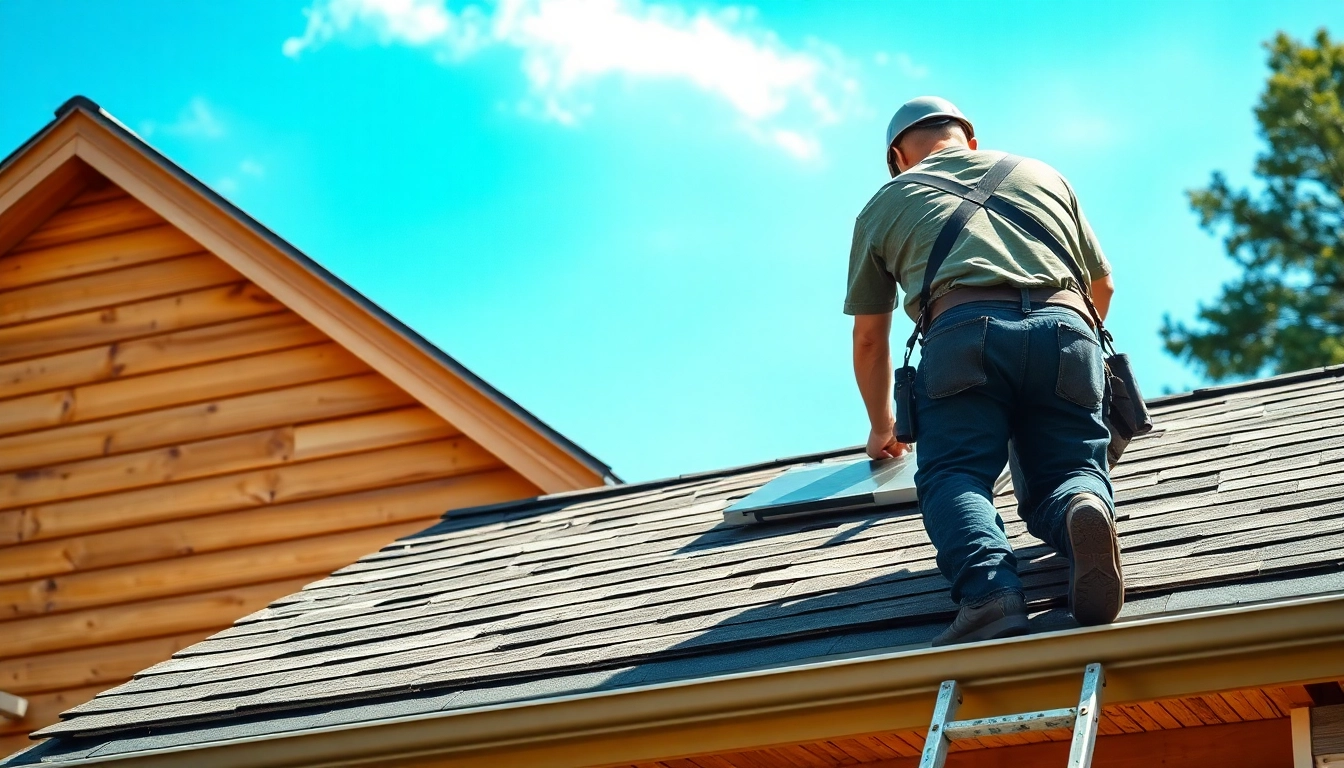
Understanding Roof Replacement Vancouver Wa
When the structure over your head begins to show signs of wear, understanding the process of Roof Replacement Vancouver Wa becomes essential. Roof replacement is more than just an aesthetic upgrade; it’s a crucial safety measure that protects your home from the elements while improving its value. This article aims to provide in-depth insights into roof replacement, helping homeowners make informed decisions when the time comes.
What is Roof Replacement?
Roof replacement involves the complete removal of your existing roof material, followed by the installation of new roofing materials. This process serves as a comprehensive solution for roofs that are too damaged or outdated to repair. Unlike roof repairs, which may only address specific issues, roof replacement is a total overhaul intended to restore the integrity and longevity of your home’s top layer.
Signs You Need a Roof Replacement
Identifying the need for roof replacement can prevent more significant issues in the long run. Here are several key indicators that it might be time for a new roof:
- Age of the Roof: Most roofs have a lifespan of 20 to 25 years. If your roof is nearing the end of this range, consider a replacement.
- Visible Damage: Cracked, curled, or missing shingles are clear signs that a replacement is needed.
- Water Leaks: Signs of water damage inside your home, including stained ceilings or walls, indicate serious roofing problems.
- Moss or Algae Growth: Over time, natural growth on the roof can cause underlying damage and should be examined carefully.
- Asphalt Granules in Gutters: If you notice granules in your gutters, it signals that your shingles are deteriorating and losing their effectiveness.
Benefits of Roof Replacement
Opting for a roof replacement provides homeowners with numerous benefits:
- Enhanced Aesthetics: A new roof can dramatically improve the curb appeal and overall appearance of your home.
- Increased Energy Efficiency: Modern roofing materials offer improved insulation, which can lower your heating and cooling bills.
- Improved Safety: A new roof protects against leaks or water damage that could compromise the structural integrity of your home.
- Increased Property Value: A new roof can increase your home’s resale value, making it more attractive to potential buyers.
Choosing the Right Materials for Your Roof Replacement Vancouver Wa
Types of Roofing Materials
Selecting the right material for your new roof is crucial for ensuring its durability and effectiveness. Common roofing materials include:
- Asphalt Shingles: Affordable and widely used, asphalt shingles offer a good balance of cost and efficiency.
- Metal Roofing: Known for its longevity and durability, metal roofs can last 40 years or more.
- Wood Shingles: Providing a natural look, wood shingles can blend well with your home’s aesthetics but require regular maintenance.
- Slate Roofing: While costly, slate provides excellent durability and can last over a century.
- Tile Roofing: Commonly used in warmer climates, tile roofs are durable but can be heavy and require strong structural support.
Cost Considerations for Different Materials
Understanding the cost implications of your roofing material choices is vital for budgeting your roof replacement project:
- Asphalt Shingles: Generally the most affordable option, ranging from $90 to $100 per square.
- Metal Roofing: This can range from $120 to $900 per square based on the type of metal and installation complexity.
- Wood Shingles: Expect costs between $350 and $450 per square, though maintenance can add to long-term expenses.
- Slate Roofing: High-end material can cost from $600 to over $1500 per square, reflecting its luxury status.
- Tile Roofing: This can range from $300 to $800 per square, requiring consideration of structural support costs.
Energy Efficiency and Material Choices
Energy-efficient roofing can significantly impact your home’s comfort and utility costs:
- Reflective Coatings: Many materials can be coated with energy-efficient materials that reflect sunlight away from your home, reducing cooling costs.
- Proper Insulation: Ensure your roofing system is installed with proper ventilation and insulation to maximize energy efficiency.
- Color Choices: Lighter colors reflect sunlight, while darker shades absorb it; choosing the right color can influence your energy bills.
Finding the Right Contractor for Your Roof Replacement Vancouver Wa
Questions to Ask Potential Roofing Contractors
Finding a skilled contractor is essential for a successful roof replacement. Here are the key questions to ask:
- What is your license and insurance status?
- Can you provide references from past clients?
- What warranties do you offer on your work and materials?
- What is the estimated timeline for my project?
- How do you handle unexpected costs or issues during the project?
Checking Licenses and Insurance
Always ensure your contractor is licensed and insured. This not only protects you but also ensures that the contractor operates within local building codes and regulations. Request copies of their insurance certificates, including general liability and workers’ compensation insurance.
Reading Reviews and Testimonials
Check online reviews and testimonials to gauge customer satisfaction. Websites like Yelp or Google Reviews can provide insights into the contractor’s reliability, quality of work, and customer service. Be wary of contractors with overwhelmingly negative feedback or lack of a substantial online presence.
Preparing for Your Roof Replacement Vancouver Wa
What to Expect During the Process
Understanding the replacement process can help you prepare adequately. Generally, the process involves:
- Initial Inspection: A thorough evaluation of the existing roof to determine the extent of replacement needed.
- Removal of Old Roofing: The existing roofing material is stripped away to expose the structure beneath.
- Inspection of Underlayment: This layer is checked for damage; any issues need addressing before new material installation.
- Installation of New Roof: Once the old material is removed and repairs made, the new roofing material is installed according to the manufacturer’s guidelines.
How to Prepare Your Property
Preparation is key to making the roof replacement process smooth and efficient:
- Clear your yard of debris and lawn furniture to provide easy access for workers and equipment.
- Inform your neighbors of the upcoming work; this helps them expect noise and disruption.
- Protect your interior: Remove items from the attic and cover furniture in the rooms directly beneath the roof to avoid dust and debris.
Scheduling Your Project
Consider the season when scheduling your roof replacement. While many contractors can work year-round, optimal weather conditions usually lead to a more efficient process and better workmanship. Early spring or fall is often ideal in many regions due to moderate temperatures and less rainfall.
Post-Replacement Considerations for Your Roof Replacement Vancouver Wa
Maintenance Tips for New Roofs
Proper maintenance can extend the lifespan of your new roof:
- Schedule regular inspections to catch issues early before they escalate.
- Keep gutters clean and free of debris to prevent aggregation of water.
- Trim trees that hang over your roof to avoid damage from falling branches.
- Address any issues like leaks or missing shingles immediately to avoid extensive damage.
How to Identify Potential Problems Early
Being proactive can save you time and money:
- Conduct annual roof inspections to identify signs of wear early.
- Pay attention to any signs of water damage within your home.
- Document and take photos of any changes you notice; this information will be helpful when discussing with contractors.
Understanding Warranties and Lifespan of Materials
Understanding your materials’ warranties is crucial:
- Most manufacturers offer warranties ranging from 20 to 50 years, but these often depend on proper installation.
- Ask your contractor about the warranty details on both the labor and materials.
- Keep all documentation in a safe place for future reference, especially if you decide to sell your home.





